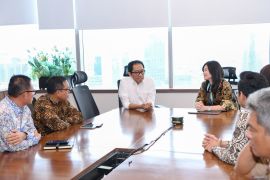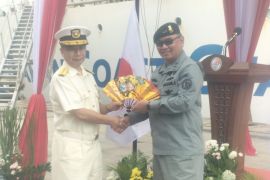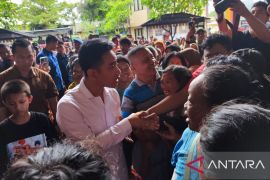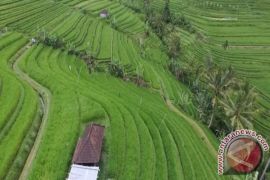London, UK, (Antara) - Settlements in Surabaya, East Java Province, have drawn the interest of the public and architects in Europe attending a conference and seminar held as part of Europalia Festival Indonesia between October 2017 and January 2018.
Surabaya Mayor Tri Rismaharini was the speaker at the conference themed "Lecture on Cities: The Urban Laboratory of Surabaya, the Kampoeng Experience," according to a statement from the Indonesian Embassy in Brussels received by Antara here on Saturday.
The mayor highlighted the contribution of kampeongs, or villages, to Surabaya City and how the village has become a center of economic growth for the capital of East Java Province.
Meanwhile, Professor on City Planning and Settlement Johan Silas from the Sepuluh November Institute of Technology pointed out that villages were not slum areas but modern and neat settlements that had retained their characteristic as traditional places of dwelling.
The discussion emphasized how Surabaya was able to facilitate informal leadership in a settlement, through "Rukun Warga" (RW) and "Rukun Tetangga," to manage the environment and neighborhood.
RW is an informal division of regions in Indonesia under the village, while Rukun Tetangga is a lower division under RW. Mutual assistance among villagers embodies a high level of social solidarity based on morality, shared sentiments, and general consensus, which is locally called "gotong royong."
Belgian architects view RT and RW as unique aspects not found in Belgium and other European countries.
Belgium faces the challenge of fostering a sense of commonality in settlements.
Participants at the lecture were also keen to know how gotong royong continues to be practiced in Surabaya.
Rismaharini emphasized that mutual help is highly relevant and a characteristic of Surabaya and an important part of the establishment and sustainability of the villages.
Surabaya has a command center, which is a helpline of all its citizens. There are 372 public parks in every sub-district that are accessible to children and the disabled.
In addition, the Surabaya city administration has built an area for street vendors to organize trading activities and learning centers for languages, maths, information technology, and other subjects.
Surabaya has become a smart city, with the latest public facilities for its people, but it still upholds the city's history and traditional characteristics.
Villages in Surabaya have offered unique insights to Belgian architects.
The discussion has offered a valuable lesson for the development of cities in Belgium, Christine Fountaine, head of the Department of Architectural Sciences of the Catholic Louvain University, noted.(*)









